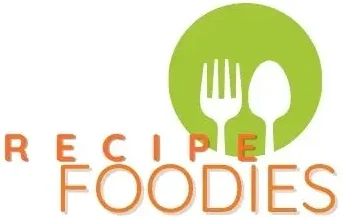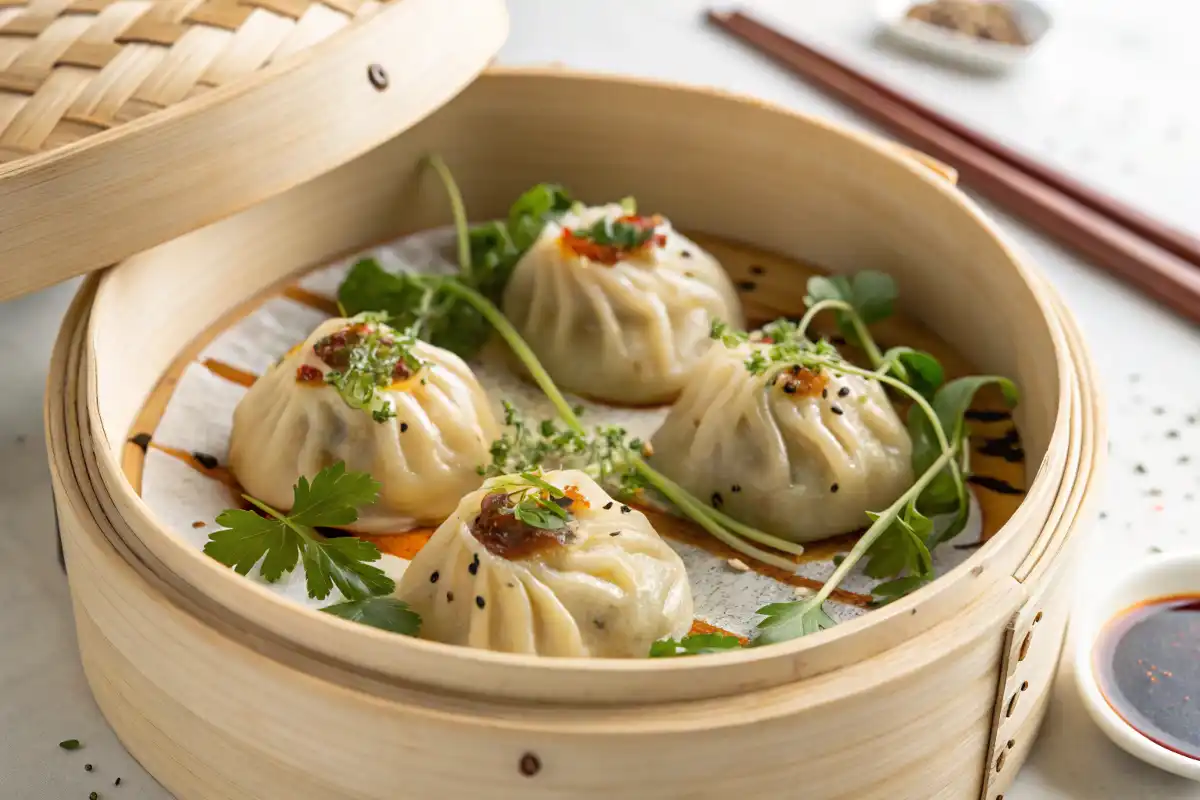Are you wondering if vegan dumplings can be a good part of your diet? Lots of people are! As more folks start eating plant-based meals, it’s normal to ask about how healthy vegan foods like dumplings are. This article looks closely at the question: are vegan dumplings healthy? We’ll check out everything from what’s in them and how healthy they are to their good points and bad points. So, let’s begin and see if these yummy snacks are right for you! We’ll show what makes vegan dumplings different, look at them next to regular ones, and give tips to help you pick the best options.
Introduction: Diving into the World of Vegan Dumplings
What Are Vegan Dumplings?
So, what are we really talking about when we say “vegan dumplings”? Well, not like regular dumplings that have meat or other things from animals, vegan dumplings are all made from plants. They’re like small dough bags filled with a tasty mix of veggies, plant protein like tofu or tempeh, and herbs and spices that taste good. They can be steamed, fried in a pan, or boiled, and they’re common in many kinds of food from different places. Think of them as a useful and yummy way to eat different plant-based things.
The Growing Popularity of Plant-Based Diets
It’s clear that plant-based eating is growing very fast. More and more people are choosing to eat less meat and more plants, for reasons about their health, the world around them, or just because they want to try it. This change in how people eat has made a big rise in the need for yummy and easy vegan food choices. Because of this, you see vegan dumplings showing up in restaurants and stores all over. It seems like everyone wants tasty and filling ways to eat instead of regular meals, and plant-based dumplings are a good fit for that.
Why the Question “Are Vegan Dumplings Healthy?” Matters
Since they are getting so much more popular, it’s normal to ask: are vegan dumplings healthy? After all, just because something is vegan does not mean it is good for you. Lots of vegan foods that are made in factories, like some dumplings that are ready to eat, could have a lot of salt or sugars that are not good for you. Because of this, it’s important to check what’s in them and how healthy they are. We want to make sure we are picking well, and that means knowing if the food we choose is making our bodies strong. Knowing if vegan dumplings are a good pick for you is very important for a healthy life. So, let’s look at the details!
Nutritional Profile of Traditional Dumplings vs. Vegan Alternatives
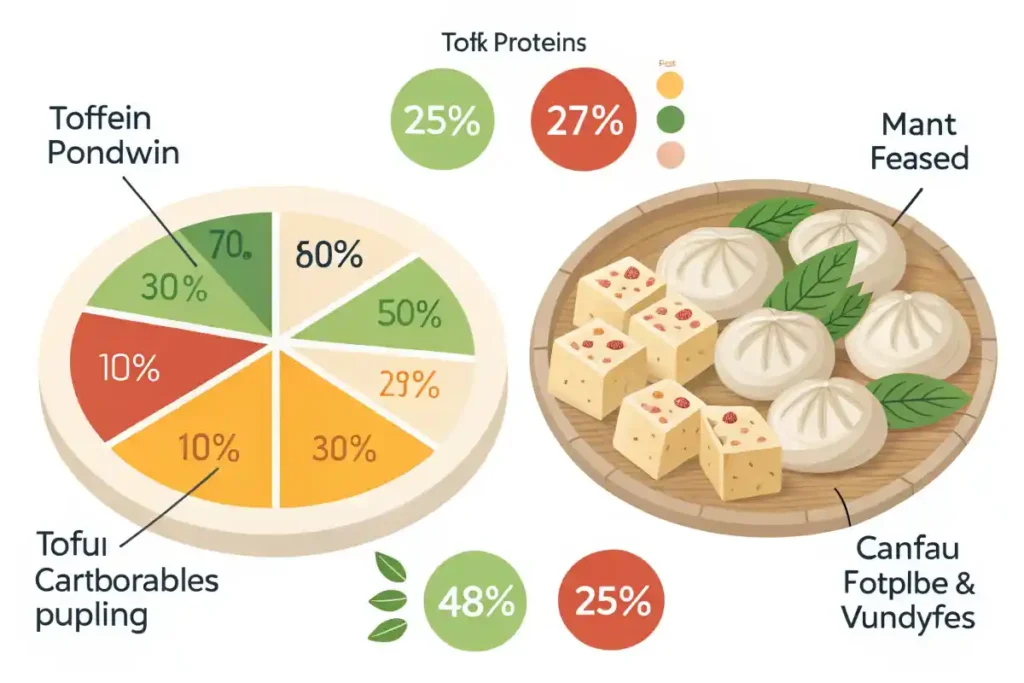
Traditional Dumpling Ingredients and Their Nutritional Value
Let’s start by seeing what usually goes into regular dumplings. They’re often made with a dough of white flour and filled with a mix of meat, veggies, and sometimes other things like eggs. How healthy these dumplings are really depends on what’s inside. For example, meat fillings usually have more protein and bad fats, while veggie fillings give you vitamins and fiber. But, white flour, often used for the dough, is mostly made of sugars that are not good for you and with less fiber. This, of course, makes us ask: are vegan dumplings healthy? Well, it’s all about seeing the differences, so let’s look closer.
Common Fillings: Meat, Vegetables, and Their Impact
Meat fillings, like pork or chicken, are a good way to get protein. But, they also often have a lot of bad fat, which is not good for your heart. Veggie fillings, on the other hand, give you fiber, vitamins, and minerals. The exact mix of veggies also changes how healthy they are. For example, a mix with lots of green leafy things and other veggies is much healthier than a mix with only onions and cabbage. So, the amount of meat and veggies really changes how healthy the whole dumpling is.
Dough Composition: White Flour vs. Alternatives
Regular dumplings often use white flour for the outside part. This flour, while it’s easy to use, doesn’t have much fiber or good stuff compared to whole wheat choices. This is because the outside and inside parts, which have most of the good stuff and fiber, are taken away when it’s made. This, so, changes how healthy the dumpling is overall. Picking other flours, like whole wheat or even ones without gluten, can really make a change.
How Vegan Dumplings Typically Differ
Now, let’s talk about vegan dumplings. Usually, they take out meat and use plant protein instead, and they’re filled with many veggies and tasty things. Also, the outside part of vegan dumplings can often be made from other flours. So, it’s clear that what they are made of is different, which changes how healthy they are. Because of this, they often give you different good things for your health. But how different are they really?
Plant-Based Protein Sources: Tofu, Tempeh, and Beyond
Instead of meat, vegan dumplings often use plant protein. Tofu, tempeh, and lentils are all good picks, giving you important parts that help your muscles grow and fix themselves. These also give you other good stuff, like fiber and important minerals. This is very different from regular fillings. So, asking “are vegan dumplings healthy?” becomes about checking out these plant-based swaps.
Vegetable Combinations in Vegan Fillings
Vegan fillings are often bursting with vegetables, and this isn’t just for taste. Using diverse vegetable combinations provides a variety of nutrients. You might find things like cabbage, carrots, mushrooms, and spinach all in one dumpling. All these vegetables come with their own benefits, like vitamins, minerals, and antioxidants. Thus, it’s not just protein that’s benefiting you here.
Flour Choices in Vegan Dumpling Wrappers
When it comes to the dough, vegan dumpling recipes might use different flour choices. While some might still use white flour, many use whole wheat flour or gluten-free alternatives. These alternative flours add fiber and nutrients, making the overall dish a bit healthier. This switch from refined flours can lead to a significantly improved nutritional profile.
Key Ingredients in Vegan Dumplings and Their Health Benefits
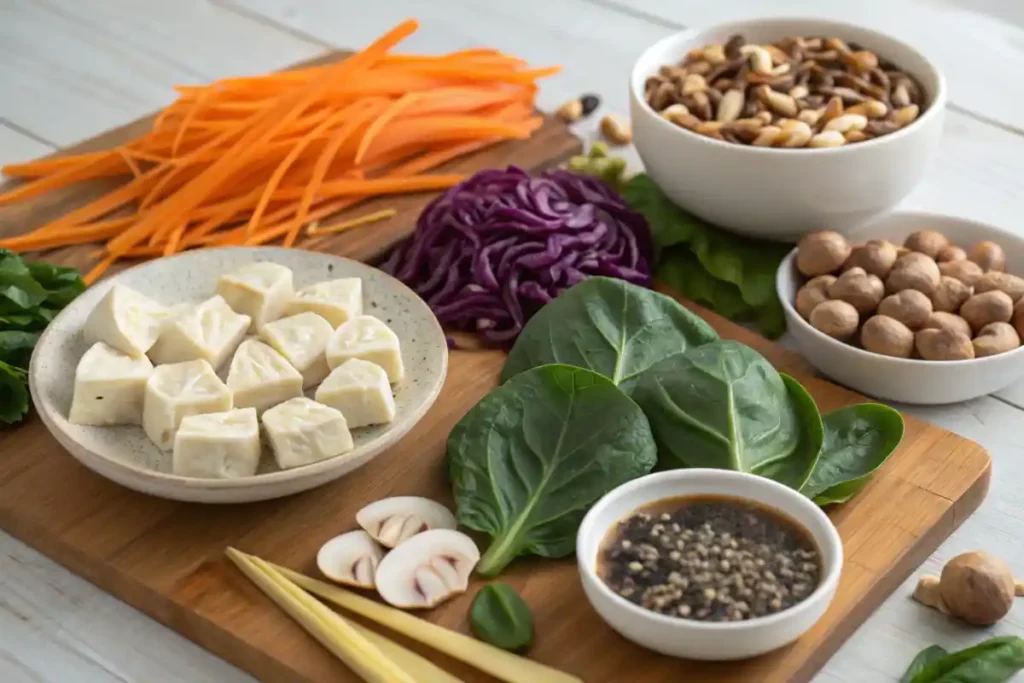
The Health Advantages of Common Vegan Protein Sources
Let’s dive a little deeper into the specific benefits of the common protein sources in vegan dumplings. These ingredients are what makes vegan dumplings not only delicious but also nutritious. Therefore, it’s worth understanding what each ingredient brings to the table.
Tofu and Its Nutritional Value
Tofu, made from soybeans, is a powerhouse of plant-based protein. It’s also a good source of iron and calcium and low in saturated fats. Furthermore, it contains isoflavones, which are antioxidants that offer various health benefits. Tofu is a versatile ingredient that easily absorbs flavors, making it perfect for dumpling fillings. Therefore, it’s a nutritional win!
Health Benefits of Tempeh
Similar to tofu, tempeh is another soy-based product packed with protein, fiber, and essential vitamins and minerals. The fermentation process involved in making tempeh also creates probiotics, which are great for gut health. All this makes tempeh a wonderful ingredient for vegan dumplings and a solid choice when answering if are vegan dumplings healthy.
Using Lentils, Beans, and Other Legumes
Lentils, beans, and other legumes are also excellent plant-based protein sources for vegan dumplings. These ingredients are high in fiber, which is great for digestion and keeps you feeling full longer. Plus, they come with lots of vitamins and minerals. Adding a mix of legumes to your dumplings is a sure way to boost their nutritional profile.
Exploring the Benefits of Vegetables Commonly Found in Vegan Dumplings
Vegan dumplings shine when it comes to vegetable content. The variety and quantity really do make them stand out. So, let’s take a peek at the health benefits of common additions.
Cabbage, Carrots, and Other Cruciferous Options
Cabbage, carrots, and other cruciferous vegetables bring a lot to the table. They’re rich in vitamins, minerals, and fiber. Moreover, they contain compounds that might help protect against certain diseases. These vegetables are common in many dumpling recipes for good reason: they’re both healthy and versatile.
Mushrooms: A Nutrient-Rich Addition
Mushrooms add both flavor and nutrients. They are a good source of B vitamins, selenium, and antioxidants. They also provide a unique umami flavor that really enhances the overall taste of the dumpling. Mushrooms, thus, are a fantastic addition to any vegan filling, both health-wise and taste-wise.
Ginger and Garlic: Flavorful and Beneficial Spices
Garlic and ginger are not just for flavor; they also have some serious health benefits. Ginger has anti-inflammatory properties, while garlic can boost immunity. These spices add a delightful kick and improve the health factor of any vegan dumpling. Therefore, a little goes a long way.
The Role of Healthy Fats in Vegan Dumpling Fillings
Finally, let’s not forget about healthy fats. While they often get a bad rap, healthy fats are essential to a balanced diet and are often found in vegan dumplings.
Nuts and Seeds in Filling: An Overview
Nuts and seeds, like sesame seeds or chopped walnuts, can add healthy fats, extra fiber, and protein to the filling. They add a satisfying crunch and a lot of good nutrients. Consequently, they’re a useful addition to consider when crafting your vegan dumpling recipe.
Avocado: Good Fats in Dumplings
Adding avocado to vegan dumplings brings healthy monounsaturated fats, which are good for your heart. It also provides a smooth, creamy texture. Avocado can be a surprisingly great addition, and it brings a lot to the nutritional profile. These fats, along with others, are definitely something to consider when thinking, are vegan dumplings healthy?
Potential Health Benefits of Vegan Dumplings
High Fiber Content and Digestive Health
One of the standout benefits of vegan dumplings is their high fiber content. Given that they’re packed with vegetables and plant-based ingredients, you’re likely to get a good dose of fiber with each serving. This is a significant advantage because fiber plays a crucial role in overall health. Therefore, let’s take a look at exactly how it helps.
How Plant-Based Fiber Aids Digestion
Plant-based fiber is fantastic for digestion. It adds bulk to your stool, which helps prevent constipation. Furthermore, it feeds the beneficial bacteria in your gut, promoting a healthy microbiome. A healthy gut is associated with improved digestion, enhanced immunity, and even better mental health. Thus, the fiber in vegan dumplings is a big plus.
The Impact of Fiber on Satiety
Besides aiding digestion, fiber is also great for satiety. Because it takes longer to digest, it helps you feel full for longer. This means you’re less likely to overeat or snack between meals. Consequently, this can be a major factor in weight management and maintaining a healthy eating pattern. Therefore, the fiber in vegan dumplings not only supports your digestive system but can also help you control your appetite.
Lower Saturated Fat Content Compared to Meat-Filled Options
Compared to their meat-filled counterparts, vegan dumplings are typically much lower in saturated fat. This is largely because they replace meat with plant-based alternatives. This difference can have a huge impact on your overall health, especially your heart health. So, let’s delve into that a bit more.
Reducing Risk Factors for Heart Disease
Saturated fat, often abundant in meat products, can increase bad cholesterol levels, which is a risk factor for heart disease. By choosing vegan dumplings, you’re generally opting for a lower saturated fat option, which is better for your heart health. This, therefore, is an important point in the discussion: are vegan dumplings healthy? Moreover, it’s one of the key benefits.
Rich in Vitamins and Minerals from Plant-Based Ingredients
Vegan dumplings are often packed with a wide variety of plant-based ingredients, which means they are usually abundant in vitamins and minerals. This nutrient density makes them a great choice for anyone looking to boost their vitamin and mineral intake.
The Abundance of Micronutrients in Vegan Ingredients
Plant-based ingredients are loaded with micronutrients, which are vital for many bodily functions. You’ll find vitamins like A, C, and K, plus minerals like iron, potassium, and magnesium in the diverse fillings of vegan dumplings. So, you’re not just getting protein and fiber; you’re also getting a whole host of other beneficial nutrients.
Antioxidant Benefits of Plant-Based Ingredients
Finally, many of the plant-based ingredients in vegan dumplings are rich in antioxidants. These compounds help protect your cells from damage caused by free radicals. This can contribute to overall health and well-being. Therefore, antioxidants are another great advantage in choosing vegan dumplings.
Potential Health Concerns Regarding Vegan Dumplings
Processed Ingredients in Store-Bought Options
While vegan dumplings can be incredibly healthy, there are some things to watch out for, particularly with store-bought or pre-made options. These often contain processed ingredients, which can diminish their overall health benefits.
High Sodium Levels: What to Look For
One common issue with store-bought vegan dumplings is high sodium levels. Too much sodium can lead to increased blood pressure and other health issues. So, when buying vegan dumplings, be sure to check the nutrition label carefully and choose options that are lower in sodium. This is an easy step to help you make a healthier choice.
Additives and Preservatives in Pre-Made Dumplings
Another thing to look out for in store-bought dumplings is additives and preservatives. These ingredients are often used to extend shelf life and enhance flavor, but they may not be the best choice for your health. Therefore, opting for homemade versions or carefully selecting brands that use minimal additives is often the best way to go.
Potential for Refined Carbohydrates in Dumpling Wrappers
Even if the filling is super healthy, the dumpling wrappers can be a source of potential problems. Some vegan dumpling wrappers are made with refined carbohydrates, which aren’t the best choice for overall health.
White Flour vs. Whole Wheat Options
The most common type of wrapper is made from white flour. This kind of flour is low in fiber and nutrients compared to whole wheat alternatives. Opting for whole wheat or other whole grain flours can significantly boost the nutritional value of the dumplings. Therefore, it’s always a good idea to check the ingredients.
The Glycemic Impact of Different Flours
The type of flour used can also impact the dumpling’s glycemic index. Refined flour can cause a quick spike in blood sugar levels, while whole grain flours release sugars more slowly. Choosing a lower glycemic index flour is often better for maintaining stable energy levels and preventing blood sugar spikes.
The Role of Healthy Cooking Methods
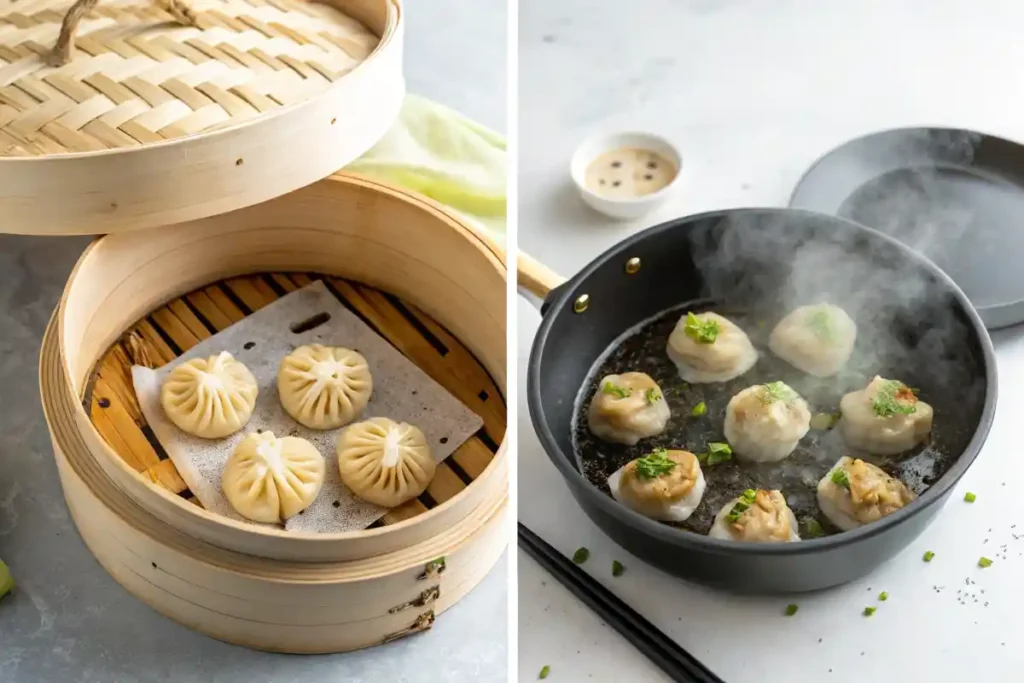
How you cook your dumplings also matters. Choosing healthy cooking methods makes a big difference in the overall health profile of your meal.
Steaming vs. Frying
Steaming is by far the healthiest way to cook dumplings. It doesn’t require any extra oil and keeps the nutrients intact. On the other hand, frying adds extra calories and unhealthy fats. Therefore, opting for steamed dumplings whenever possible is often the best approach.
Portion Control: A Critical Factor for Healthy Eating
Finally, it’s important to consider portion control. Even if you’re eating super healthy vegan dumplings, consuming too much of anything can lead to weight gain and other health issues. So, enjoy your dumplings in moderation as part of a balanced meal. Portion control, therefore, is crucial for all kinds of foods.
Are Vegan Dumplings Good for Weight Management?
Calorie Considerations in Vegan Dumplings
So, when it comes to weight management, are vegan dumplings a good choice? Well, as with any food, it depends on several factors. The calorie content of vegan dumplings can vary quite a bit, depending on the ingredients and cooking methods used. Therefore, let’s dive into some considerations.
Comparing Caloric Density of Different Fillings and Cooking Methods
The caloric density of your vegan dumplings will depend largely on the filling. For instance, fillings that are higher in healthy fats, like nuts and seeds or avocado, will have more calories than those that are mainly vegetables. Also, the cooking method matters. As discussed, fried dumplings will pack more calories than steamed dumplings. Therefore, keeping these things in mind is key to weight management.
The Role of Fiber and Satiety in Weight Control
However, it’s not all about calories; fiber also plays a significant role in weight management. As mentioned earlier, fiber helps you feel full and satisfied for longer, which can prevent overeating. Since vegan dumplings are packed with fiber, they can be a helpful tool for weight control when consumed thoughtfully. This makes you ask, are vegan dumplings healthy for weight loss? The answer, thus, depends on your choices.
How Vegan Dumplings Fit into a Balanced Diet
Vegan dumplings, like any other food, need to fit into a balanced diet. A balanced diet is all about variety and moderation. If your meals are balanced, then enjoying vegan dumplings from time to time can be part of a healthy eating pattern. In this case, they can contribute protein, fiber, and vital micronutrients.
Mindful Consumption of Vegan Dumplings
Finally, mindful consumption is key. This means paying attention to your body’s hunger cues and enjoying your food without distractions. Eating slowly and savoring each bite can make a big difference in how your body processes food, which is helpful to consider. Therefore, being mindful while enjoying your vegan dumplings will ensure you’re eating them healthfully.
Making Healthy Vegan Dumplings at Home
Choosing Healthier Ingredients for Dumpling Wrappers
If you’re really serious about making healthy vegan dumplings, you should absolutely consider making them at home. This allows you to control exactly what goes into them. It also starts with choosing healthier options for the dumpling wrappers.
Whole Wheat vs. Refined Flour Options
Instead of using refined flour, opt for whole wheat flour or a mix of whole grain flours. This instantly increases the fiber and nutrients in your dumplings. It’s a simple swap that makes a big difference! Therefore, try to avoid white flour when possible.
Tips for Creating Nutrient-Rich Fillings
Next, let’s think about the fillings. You can make the filling of your vegan dumplings as healthy as you want! It’s all about balancing the right ingredients.
Balancing Protein, Fiber, and Healthy Fats
Aim for a mix of plant-based protein, such as tofu, tempeh, or lentils, along with plenty of vegetables and a source of healthy fats. A mix that is well balanced is not only delicious but it also provides all the essential nutrients. Therefore, it’s beneficial to experiment with different combinations.
Healthier Cooking Methods for Dumplings
Now, let’s turn our attention to cooking methods. As previously mentioned, not all cooking methods are created equal. Some methods are much better for maintaining the health benefits of your dumplings.
Steaming, Baking, and Lightly Sautéing
Steaming is by far the best option for preserving the nutrients and avoiding added fats. Baking is another good option. If you’re pan-frying, be sure to use only a minimal amount of healthy oil, such as olive oil or avocado oil. Therefore, you’ve got options that are less harmful.
Flavor Enhancements Without Added Sodium
Finally, you can add tons of flavor to your vegan dumplings without resorting to extra salt. Using lots of fresh herbs, spices, and aromatics can really elevate the taste. This is an easy and healthy swap. Therefore, experiment with different herbs to boost the flavor of your vegan dumplings.
Vegan Dumplings and Different Dietary Needs
Vegan Dumplings for Individuals with Gluten Sensitivity
Now, let’s consider how vegan dumplings can fit into different dietary needs. For example, what about people who are gluten-sensitive or have celiac disease? Can they still enjoy these tasty treats? The answer is yes, with a few adjustments. It’s entirely possible to create gluten-free options that are just as delicious and healthy.
Gluten-Free Dumpling Wrappers
The key is to choose gluten-free dumpling wrappers. There are many options available, like those made with rice flour, tapioca flour, or a blend of gluten-free flours. These alternatives allow people with gluten sensitivities to enjoy vegan dumplings without any issues. So, be sure to look for certified gluten-free options, or make your own at home.
Adjusting Vegan Dumplings for Low-Carb Diets
What about people on a low-carb diet? Can vegan dumplings still be part of their eating plan? It’s a bit more challenging, but with some clever modifications, it’s definitely possible to enjoy vegan dumplings on a low carb diet. It all comes down to making smart choices.
Vegan Dumplings for Athletes
Lastly, let’s consider how vegan dumplings can fit into the diet of an athlete. Athletes require a good balance of protein, carbohydrates, and other essential nutrients to fuel their training and recovery. Therefore, it’s important to see how vegan dumplings measure up. Vegan dumplings can be a good source of carbohydrates, particularly if they use whole grain wrappers. However, the protein content can be a bit lower than an athletes needs unless you’re mindful of the filling. Thus, the focus should be on making the filling as protein-rich as possible. Moreover, it’s important to consider your overall dietary balance when choosing to eat vegan dumplings.
Are Vegan Dumplings Healthy? – Summarizing the Key Points
Recapping the Benefits of Plant-Based Dumplings
So, we’ve covered a lot about vegan dumplings and their potential health benefits. To recap, vegan dumplings can be a great addition to a balanced diet. They’re often packed with fiber, vitamins, and minerals, thanks to their plant-based ingredients. Moreover, they tend to be lower in saturated fat compared to traditional meat dumplings. Therefore, there are many positives when considering, are vegan dumplings healthy?
Acknowledging Potential Drawbacks
However, it’s also important to acknowledge the potential downsides. Store-bought options can be high in sodium and processed ingredients. Also, the wrappers, if made with refined flour, can be low in fiber and nutrients. Furthermore, just because something is vegan, it doesn’t automatically make it a healthy option. Therefore, being mindful of these potential issues is essential.
Making Informed Choices for Optimal Health
In conclusion, the question of “are vegan dumplings healthy?” really depends on what you choose and how they fit into your overall diet. When making choices, consider your individual dietary needs and preferences. Making healthy vegan dumplings at home allows you to control ingredients. This is often a great idea when you’re thinking about improving your diet. Choosing nutrient-rich fillings, whole grain wrappers, and healthy cooking methods can make a huge difference in how your body responds to these tasty treats. Therefore, by making informed choices, vegan dumplings can indeed be part of a healthy and balanced lifestyle.
Frequently Asked Questions
Are all vegan dumplings low in calories?
One of the most common questions people have is: “are vegan dumplings automatically low in calories?” The straightforward answer is, not necessarily. You see, the calorie count of a dumpling depends a lot on the specific ingredients used and how it’s prepared. For instance, fried dumplings, or those using large amounts of oil during cooking, will naturally have more calories than steamed ones. Also, the type of filling and the sauces you are using have a huge impact. Therefore, while vegan dumplings can be healthy, you still need to be mindful of the overall calorie content if you’re watching your intake.
Can vegan dumplings be a good source of protein?
Another frequent question is whether vegan dumplings can be a good source of protein. Indeed, they certainly can! You see, with the right filling ingredients, like tofu, lentils, beans or other plant-based protein sources, you can definitely get a good amount of protein in your vegan dumplings. However, the amount of protein is directly related to the types and amount of protein sources added. Therefore, with thoughtful ingredient choices, vegan dumplings can absolutely contribute to your daily protein needs.
Are vegan dumplings gluten-free?
Another query we often hear is: “are all vegan dumplings gluten-free?”. Now, the answer to this, is that it depends on the wrapper. The reality is that most vegan dumplings are made with wheat flour which is not gluten-free. The good news is that you can easily find or make gluten-free versions using rice flour or other gluten-free flour blends. Therefore, if you need gluten-free dumplings, you’ll have to carefully check the ingredients or look for specific gluten-free recipes.
What are some healthy vegan dumpling dipping sauce options?
Finally, let’s talk about dipping sauces because they are often a source of added sugars and sodium. However, healthy vegan dumpling sauces can be easily created. Try mixing low-sodium soy sauce with some rice vinegar, ginger, and a touch of sesame oil for a flavourful sauce. Alternatively, for a lighter option, combine fresh herbs like cilantro and mint with lime juice and a dash of chili. Therefore, creating your own sauces is a simple and effective way to enjoy your vegan dumplings without excess sodium or sugars.
Conclusion
So, are vegan dumplings healthy? The answer, as we’ve explored, isn’t a simple yes or no. It’s more nuanced than that. Like any food, the healthfulness of vegan dumplings depends on a variety of factors, primarily the ingredients used and how they are prepared. On one hand, vegan dumplings can be a nutritional powerhouse, packed with fiber, vitamins, and minerals, especially when they feature a variety of vegetables and plant-based protein sources. They can also be lower in saturated fat compared to their meat-filled counterparts.
